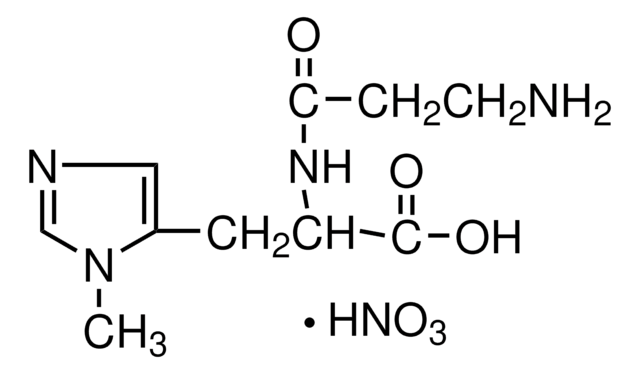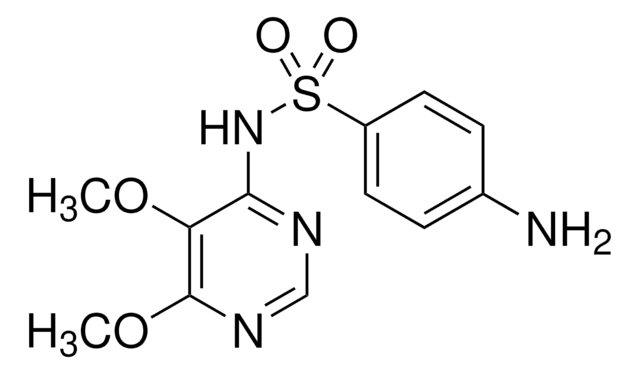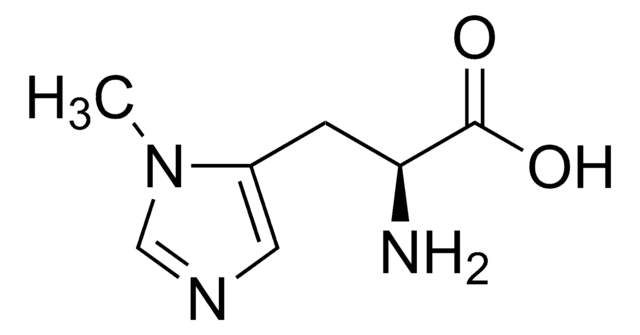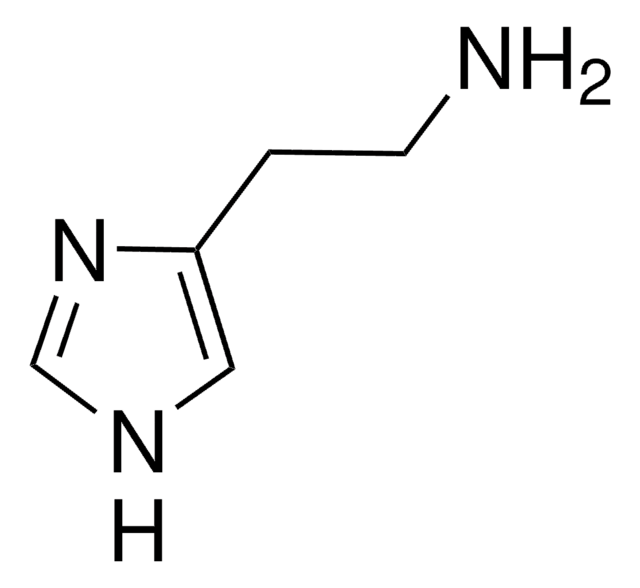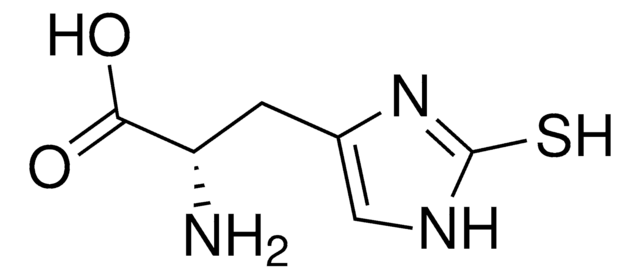C9625
L-Carnosine
~99%
Synonym(s):
β-Alanyl-L-histidine
About This Item
Recommended Products
product name
L-Carnosine, ~99%, crystalline
Assay
~99%
Quality Level
form
crystalline
color
white to off-white
mp
253 °C (dec.) (lit.)
application(s)
cell analysis
storage temp.
−20°C
SMILES string
NCCC(=O)N[C@@H](Cc1c[nH]cn1)C(O)=O
InChI
1S/C9H14N4O3/c10-2-1-8(14)13-7(9(15)16)3-6-4-11-5-12-6/h4-5,7H,1-3,10H2,(H,11,12)(H,13,14)(H,15,16)/t7-/m0/s1
InChI key
CQOVPNPJLQNMDC-ZETCQYMHSA-N
Looking for similar products? Visit Product Comparison Guide
Amino Acid Sequence
Application
Biochem/physiol Actions
Storage Class Code
11 - Combustible Solids
WGK
WGK 2
Flash Point(F)
Not applicable
Flash Point(C)
Not applicable
Personal Protective Equipment
Certificates of Analysis (COA)
Search for Certificates of Analysis (COA) by entering the products Lot/Batch Number. Lot and Batch Numbers can be found on a product’s label following the words ‘Lot’ or ‘Batch’.
Already Own This Product?
Find documentation for the products that you have recently purchased in the Document Library.
Customers Also Viewed
Our team of scientists has experience in all areas of research including Life Science, Material Science, Chemical Synthesis, Chromatography, Analytical and many others.
Contact Technical Service